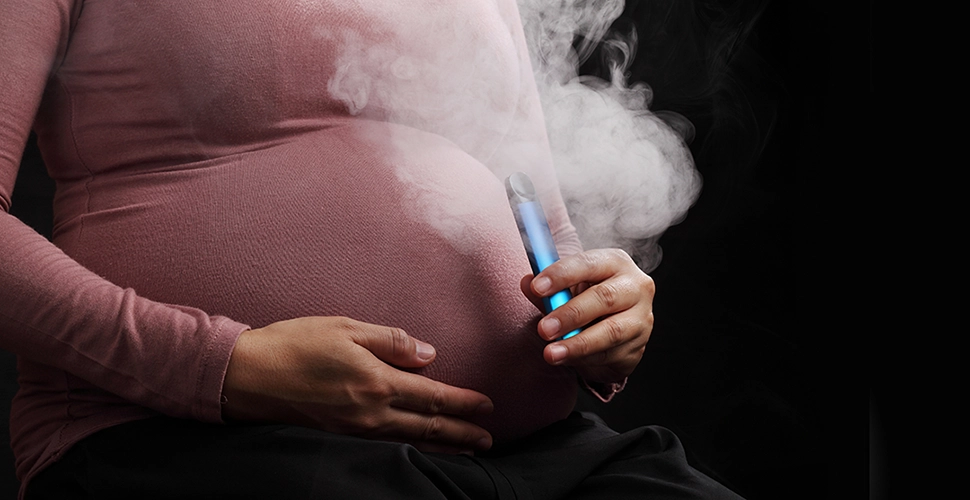E-cigarette use during pregnancy poses significant threats to maternal and fetal health. Understanding these risks empowers mothers to make informed choices for their babies’ well-being.
1. Nicotine’s Devastating Impact on Fetal Development
All e-cigarettes contain addictive nicotine, which crosses the placental barrier, constricting blood vessels and reducing oxygen/nutrient supply to the fetus. This increases risks of:

- Premature birth – Babies born before 37 weeks face higher mortality and disability rates
- Low birth weight – Under 5.5 lbs babies have elevated risks of infections, developmental delays, and chronic conditions
- Impaired brain development – Altered neuron formation affecting learning, memory, and behavior
2. Toxic Chemical Exposure Beyond Nicotine
E-cigarette aerosols contain undisclosed industrial compounds including:
- Formaldehyde (carcinogen) and acrolein (lung irritant)
- Heavy metals like lead and nickel leaching from device coils
- Flavor additives with unknown prenatal toxicity
These compounds may cause DNA damage and disrupt embryonic growth at critical stages.
3. Increased Pregnancy Complications
Vaping correlates with higher rates of:
- Placental abnormalities including placenta previa and abruption
- Preeclampsia risk nearly doubles according to longitudinal studies
- Stillbirth – Nicotine-induced hypoxia contributes to fetal demise
4. Long-Term Childhood Health Consequences
Prenatal e-cigarette exposure correlates with persistent issues:
- Respiratory disorders: 67% higher asthma risk per pediatric research
- Cognitive deficits: Reduced attention span and impulse control
- Metabolic programming issues increasing obesity susceptibility
No safe nicotine threshold exists during pregnancy. Consult healthcare providers about evidence-based cessation strategies immediately upon pregnancy confirmation.










